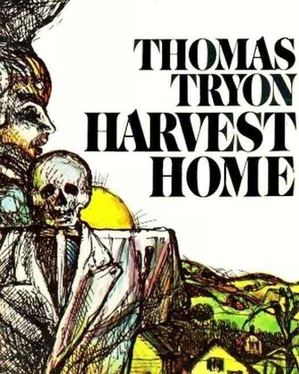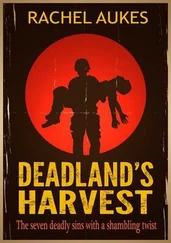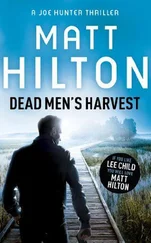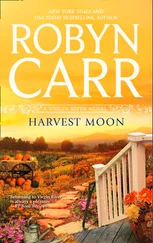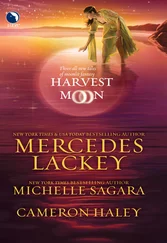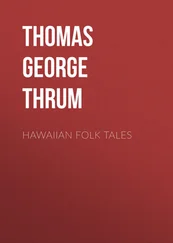Thomas Tryon - Harvest Home
Здесь есть возможность читать онлайн «Thomas Tryon - Harvest Home» весь текст электронной книги совершенно бесплатно (целиком полную версию без сокращений). В некоторых случаях можно слушать аудио, скачать через торрент в формате fb2 и присутствует краткое содержание. Жанр: Ужасы и Мистика, на английском языке. Описание произведения, (предисловие) а так же отзывы посетителей доступны на портале библиотеки ЛибКат.
- Название:Harvest Home
- Автор:
- Жанр:
- Год:неизвестен
- ISBN:нет данных
- Рейтинг книги:5 / 5. Голосов: 1
-
Избранное:Добавить в избранное
- Отзывы:
-
Ваша оценка:
- 100
- 1
- 2
- 3
- 4
- 5
Harvest Home: краткое содержание, описание и аннотация
Предлагаем к чтению аннотацию, описание, краткое содержание или предисловие (зависит от того, что написал сам автор книги «Harvest Home»). Если вы не нашли необходимую информацию о книге — напишите в комментариях, мы постараемся отыскать её.
For Ned and his family, Cornwall Coombe was to be come a place of ultimate horror.
Harvest Home — читать онлайн бесплатно полную книгу (весь текст) целиком
Ниже представлен текст книги, разбитый по страницам. Система сохранения места последней прочитанной страницы, позволяет с удобством читать онлайн бесплатно книгу «Harvest Home», без необходимости каждый раз заново искать на чём Вы остановились. Поставьте закладку, и сможете в любой момент перейти на страницу, на которой закончили чтение.
Интервал:
Закладка:
I could hear the dull reverberation of the motor as we rounded the next bend, and I wondered if we were to be followed or in some way interfered with, but when the skiff appeared again it was heading for the Cornwall shore. Shortly we had the river to ourselves once more. I wiped my arm across my forehead, rested on my oars, and let the boat drift close to the bank, enjoying our solitary state.
The sun felt warm on my back and shoulders, and I stripped off my shirt, which Beth took and held in her lap. She still continued rapt in some kind of reverie, and I made no effort to disturb it. Once she looked at me with a trace of a smile; then she looked down again, watching her hand in the water. She was wearing a gold snake I had bought for her in Venice, and I saw a fish dart close to it, attracted by the bright gleam of the metal. Then Amys Penrose’s flat-bottomed tub became a gondola and the river was the Grand Canal, the sky not American but Italian, and we were back in Venice, that summer seventeen years before, in 1955.
It had begun the previous winter, a bone-chilling one in Paris, where I was studying at the Sorbonne on the G.I. Bill. I picked Beth up on the grand staircase of the Louvre, under the “Winged Victory.” She’d come over from London with a college chum she’d been sharing a flat with in Chelsea. I heard her reading from her catalogue: “The ‘Winged Victory of Smothrace.’” Smothrace , for God’s sake; the opportunity was too good to let pass; I stopped and pointed out her error. Yes, she knew it was Samo thrace, but it always came out Smo thrace with her. The three of us spent the afternoon together, and then, out of my mind and over my budget, I invited them to dinner.
The other girl, Mary Abbott, went back to London alone and Beth stayed with me in my loft in the Rue du Bac. Sous les toits de Paris , and all very romantic and my bed was a lot warmer than it had been in some time. We saw the spring in, and spent a fortune keeping the rooms filled with lilacs, which she loved, and in June I bought a secondhand car, packed up my paints, and we worked our way down to the South of France, then into Italy. We lingered for days in the Uffizi in Florence, then went on to Venice, and finally to Greece.
We spent that winter in North Africa, where a steady stream of letters arrived for Beth, addressed in a firm, authoritative hand. Reverend Colby, Beth’s father, was demanding that she return home. Hers was an unusual situation, and though she was not inclined to talk about it I gradually learned enough to put the puzzling pieces of her life into some sort of order.
She had been christened Bethany, after the town in Connecticut her mother had come from. Mrs. Colby had been rich, and her money enabled the Reverend to enjoy a style of living not permitted to most men of the cloth. Their house, in a suburb of a large New England city, was expensively furnished, but although Lawson Colby liked his creature comforts, he mentally donned a hair shirt, forcing his wife into a strict and regimented observance of Protestant virtues. Mrs. Colby had died of diphtheria when Beth was only two, and from then on Beth lived under the bitter and tyrannical eye of her father, who forced church at her on all occasions. What he raised was not a God-fearing child, but a God-despairing one.
After college, Beth had persuaded him to let her come to Europe with Mary Abbott, to “visit cathedrals,” but now the year was up and he demanded that she return home. I had decided I was going to marry her, and had notions of what sort of reception this would meet with at the Reverend’s Methodist hands. Bethany Colby marrying the son of an immigrant Greek from Jersey City-Catholic Greeks, at that. Raised in a happy home, I could appreciate Beth’s basic needs. Being motherless, she felt rootless. She was not religious, she did not love her father. She had never experienced any warm stream of affection as a child, and after her mother’s death the father had become a stricter parent-harsh, even-making sure that the minister’s daughter didn’t go wild. In the Puritan ethic of his Cotton Matherish forebears, to be happy was, by extension, to be sinful, and until we met I do not think Beth had ever been very happy. But there was this about her: she had the characteristics of the chameleon, which takes hue and color from its surroundings; stubborn though she might be at times, Beth was open to influence. I was a happy person, and by some subtle transference she, too, became happy. With me the minister’s daughter went wild on the Left Bank and all the Reverend’s decrees about Thrift, Work, Virtue, and the True God were tossed out the windows of our Paris loft.
It was impossible to toss the father as well, so we went home and faced the music, which at best proved discordant. The Reverend had heard tales of bohemian artists living in garrets; he did not deem me a suitable choice for a son-in-law. But by spring Beth’s defiance of the old man was sufficient to elicit his agreement to our marriage if I would “settle down to some honest work.”
We were married in June and moved into an apartment in Greenwich Village. I put the paintbrushes away, and found a job with Osborne & Associates. The brushes stayed put away for fifteen years.
Shortly after Kate was born, we took a larger apartment on the West Side, around the corner from Pepe’s Chili Palor. Since Mrs. Pepe often baby-sat for us, we would return the favor, and it was while sitting for their daughter that I contracted the painful case of mumps that ‘Cita was still apologizing for.
I swelled up, Beth nursed me, I deflated; and went back to Osborne & Associates, hating every day of it. But during those years Beth and I were happy together. I knew that partly she had married me in order to be free of Reverend Colby, and in many ways she had replaced him with me. Nows if she had no mother, she at least had two fathers. As Kate grew, Beth lavished on the child all the attention she herself had lacked. I could see what was happening from the beginning: that Kate was being smothered with a maternal blanket of the heaviest weave. When she was nine, she had her first asthmatic attack.
These began in the winter of our ninth year of marriage, when something happened to Beth, a breakdown whose origins were both deep-seated and obscure. She withdrew into another world. I thought at first she must be having an affair with some other man, but I was wrong. She came home one evening and announced that she wanted a divorce. She was going to leave and take Kate with her. No amount of reasoning on my part could sway her from this stubborn course, but a friend of ours at Columbia persuaded her to see a psychiatrist. The cause of her morbidity became quickly apparent, and I met with the doctor to learn what he had discovered. Beth had lacked a mother, which had led to a hatred of the father. I had replaced the father, and now her subconscious was transferring the hatred to me.
We got through it. She became whole again, became the Beth I had known, and we even joked about her having the nine-year itch. But there was still the problem of Kate’s attacks, which no amount of medical treatment was able to help, which nothing had helped until we had come to Cornwall Coombe and the Widow Fortune.
I felt the keel of the boat strike something, and I opened my eyes. Beth was smiling at me. “We’ve run aground, darling.”
The boat had nosed onto a sandy shoal, and I lifted an oar from the lock to push off. “No. Let’s stay here a little,” she suggested. I took off my shoes and socks, rolled up my trouser cuffs, and got out to pull the boat onto the shoal. I helped her ashore and we clambered onto the bank, where we spread the blanket and lay down.
The river formed a small cove, a secluded inlet screened by shadblow bushes and overhung with willow branches. It was the perfect spot, a country idyll all its own. We had left the radio in the boat and the music came as though from far away. I felt a pastoral serenity and peace that communicated itself to me through the lazy drone of the bees working the patches of meadow flowers close by, the sunlight trembling on the pool below and flickering in the leaves overhead.
Читать дальшеИнтервал:
Закладка:
Похожие книги на «Harvest Home»
Представляем Вашему вниманию похожие книги на «Harvest Home» списком для выбора. Мы отобрали схожую по названию и смыслу литературу в надежде предоставить читателям больше вариантов отыскать новые, интересные, ещё непрочитанные произведения.
Обсуждение, отзывы о книге «Harvest Home» и просто собственные мнения читателей. Оставьте ваши комментарии, напишите, что Вы думаете о произведении, его смысле или главных героях. Укажите что конкретно понравилось, а что нет, и почему Вы так считаете.
